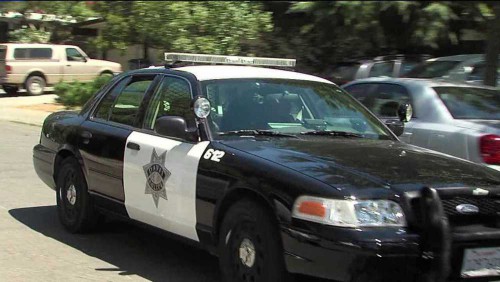 by William Kelly
by William Kelly
For the first time since events this past Picnic Day reignited calls for greater police accountability, the Davis City Council discussed a specific plan to increase transparency and civilian oversight of our police department at their September 19th meeting.
This plan came in the form of an ACLU-sponsored ordinance that would require the police department to disclose all surveillance equipment in their possession and submit their policies governing the use of this equipment to the City Council for approval. Acquisition of new equipment or changes to these policies would also need to be disclosed publicly and approved by the council. In practice this would mean that before our police department could use military or commercial surveillance equipment they would have to go through a public approval process, similar to the process they had to go through when they attempted to acquire an MRAP in 2014.
As important as this ordinance is in its own right, it also serves as a prelude to the much broader discussion about creating a civilian oversight body that was officially launched at 
the July 11th City Council meeting. In this context, Police Chief Darren Pytel’s recommendations to the City Council regarding the surveillance ordinance serve as an indication of what kind of input we can expect from the police department in the coming months.
That is why it is troubling that Chief Pytel recommended that the council modify the surveillance ordinance to make it completely toothless. More precisely, he recommended that the ordinance be amended to allow the Davis police department to “acquire and use [any] surveillance technology authorized by a valid state or federal search or arrest warrant.” This is a baffling suggestion because all police departments are already required to obtain a warrant before engaging in any surveillance activity. It is therefore hard to understand how this suggestion could be intended as anything other than an attempt to confuse the issue.
Fortunately roughly a dozen community members were there to speak in favor of the ACLU ordinance, which had already been endorsed by the city’s Human Relations Commission, and ultimately the City Council directed staff to write an ordinance modeled off the ACLU draft.
While this is a positive outcome there are reasons to remain vigilant. In their instructions the council left open the possibility of adopting some of Chief Pytel’s recommendations (though perhaps in a limited form) and what is equally troubling is that the council seemed to approve of the way Chief Pytel presented his department’s recommendations. For example, Councilmember Will Arnold thanked Chief Pytel and the rest of the staff for not stalling this discussion — which is a puzzling claim after discussion was abruptly dropped from the agenda of the July 11th city council meeting — and praised him for presenting the ordinance in “the most transparent possible way.”
If Chief Pytel objects to civilian oversight of the police department’s use of surveillance equipment he of course has a right to express his concerns. However, he should do so in a straightforward and honest way, not by recommending that the council pass a hollow ordinance that would do nothing to increase transparency or oversight. The council for its part should expect this level of openness and should not praise staff just for showing up and speaking.





